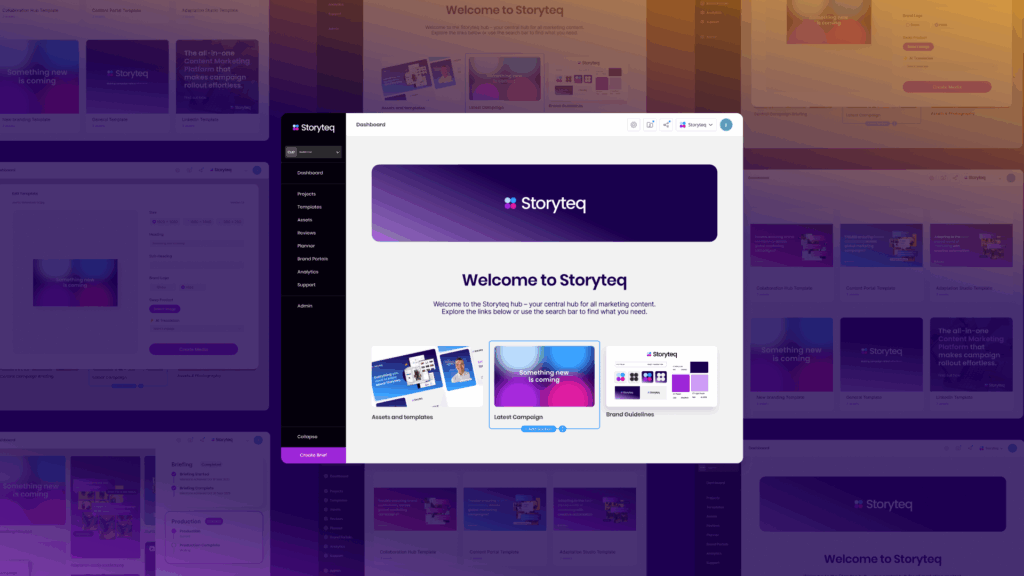To effectively use AI content creation tools, marketers need a balanced skill set combining technical understanding and creative strategy. Essential competencies include analytical abilities to interpret data from AI outputs, strategic thinking to guide AI systems toward meaningful business outcomes, and brand management skills to maintain consistent voice across automated content. Marketers must also develop proficiency in prompt engineering, understand content personalization strategies, and maintain creative oversight while leveraging automation efficiencies. The most successful professionals blend technical aptitude with traditional marketing fundamentals to maximize AI’s potential.
How Does AI Transform the Marketing Creative Process?
AI fundamentally transforms the marketing creative process by automating repetitive tasks while enabling unprecedented personalization at scale. The technology handles time-consuming elements like image resizing, copy variations, and localization that previously required hours of manual work.
At its core, AI content creation tools excel at pattern recognition and data processing, allowing marketers to generate personalized content for different audience segments simultaneously. This capability enables brands to deliver tailored messaging across multiple channels and markets without proportionally increasing production time or resources.
The real value emerges when AI handles the execution aspects of content creation, freeing marketing teams to focus on higher-level strategic work. Rather than spending hours on technical adjustments or repetitive adaptations, marketers can dedicate more time to creative ideation, campaign strategy, and audience insights analysis.
For modern marketing teams, AI automation creates a fundamental shift in workflow efficiency. Instead of producing limited creative variations, they can now test multiple approaches, optimize based on performance data, and scale successful content quickly across platforms. This transformation requires marketers to develop new skills that balance technological capabilities with creative judgment to maximize results.
What Analytical Abilities Do Marketers Need for AI Content Platforms?
Marketers working with AI content platforms need strong data interpretation skills to effectively understand and act on the insights these systems generate. The ability to analyze performance metrics across multiple content variations is essential for optimizing AI-generated content.
Proficiency in performance measurement allows marketers to identify which AI-created content elements resonate with audiences and why. This includes understanding engagement metrics, conversion rates, and audience response patterns across different segments and channels. Marketers must connect these data points to business objectives, determining whether AI-generated content is driving meaningful outcomes.
Testing methodologies become particularly important when using AI content tools. Marketers need to design effective A/B tests, multivariate experiments, and controlled rollouts to validate AI content performance. This requires understanding statistical significance, defining clear success metrics, and isolating variables to accurately measure impact.
Another critical analytical skill is the ability to recognize patterns across large content datasets. AI platforms often generate numerous content variations, and marketers must identify which elements (headlines, visuals, calls-to-action) consistently perform well. This pattern recognition helps establish content frameworks that can be replicated and refined through automation.
By developing these analytical capabilities, marketers can maximize return on investment from creative automation platforms, continuously improving content performance while reducing production costs and time to market.
How Important Is Brand Voice Maintenance When Using AI?
Maintaining consistent brand voice is absolutely critical when using AI content creation tools. Without proper governance, automated content can quickly drift from established brand standards, creating disconnected customer experiences that erode brand equity and trust.
Successful marketers establish comprehensive style guidelines specifically designed for AI implementation. These guidelines go beyond basic brand rules to include tone variations for different channels and audiences, content examples that exemplify the brand voice, and specific parameters for what the AI should avoid. This documented framework becomes the foundation for training and fine-tuning AI systems to consistently produce on-brand content.
Quality control processes are essential when scaling content through AI. This includes implementing approval workflows where human reviewers evaluate AI-generated content against brand standards before publication. Many organizations adopt a tiered review approach, with more scrutiny applied to high-visibility content while allowing more automation for routine materials.
Brand voice maintenance also requires marketers to develop prompt engineering skills—the ability to craft precise instructions that guide AI systems toward brand-aligned outputs. This involves understanding how different prompting techniques influence content generation and learning to communicate brand requirements effectively to AI systems.
Organizations that excel at maintaining brand consistency while leveraging AI typically implement regular content audits to assess how well automated materials adhere to guidelines. These reviews help identify any drift in voice or presentation, allowing teams to refine their processes and AI parameters accordingly.
What Strategic Thinking Is Required to Direct AI Content Systems?
Directing AI content systems effectively requires marketers to develop clear strategic frameworks that guide automation toward meaningful business outcomes. The foundation of this strategic thinking is establishing precise campaign objectives that define what success looks like beyond basic metrics.
Marketers need deep audience understanding to effectively direct AI content creation. This includes developing detailed audience personas, mapping customer journeys, and identifying content needs at each touchpoint. The more specific this audience knowledge, the better marketers can instruct AI systems to generate relevant, personalized content that resonates.
Another crucial strategic skill is the ability to develop comprehensive content frameworks that serve as blueprints for AI-generated variations. These frameworks outline content structure, key messages, emotional triggers, and conversion elements while allowing flexibility for personalization and testing. Well-designed frameworks ensure AI outputs maintain strategic coherence while adapting to different audience segments.
Marketers must also think strategically about content distribution and sequencing. This includes planning how different AI-generated content pieces work together across channels, determining appropriate messaging frequency, and creating logical progression in customer communications. The strategic marketer considers how the entire content ecosystem functions rather than viewing each AI-generated piece in isolation.
By developing these strategic thinking capabilities, marketers can ensure their AI content systems produce materials that not only look good and follow brand guidelines but actually advance business goals by delivering the right messages to the right audiences at the right moments. Learn more about strategic AI content planning to maximize your marketing efforts.
How Can Marketers Balance Automation With Creative Oversight?
Finding the right balance between automation efficiency and creative control is perhaps the most nuanced skill marketers need when working with AI content tools. The key is establishing a hybrid approach that leverages technology for scale while preserving human judgment for quality and innovation.
Successful marketers develop clear guidelines about which content elements can be fully automated versus those requiring human review. This often means allowing AI to handle technical adaptations (resizing, formatting, localization) and baseline content generation while reserving human creativity for concept development, emotional storytelling, and final approval of customer-facing materials.
Understanding the strengths and limitations of current AI systems is essential for effective oversight. While AI excels at generating variations based on existing patterns, it may struggle with truly novel concepts or nuanced emotional appeals. Marketers need to recognize where human creativity adds the most value and focus their involvement accordingly.
Implementing tiered review processes helps marketers scale content production while maintaining quality control. High-stakes, high-visibility content receives more human attention, while routine materials might follow more automated workflows with spot-checking. This approach allows teams to allocate creative oversight where it matters most.
The most effective marketers approach AI as a creative collaboration rather than a replacement for human creativity. They learn to “speak AI’s language” through effective prompting, provide constructive feedback on outputs, and continuously refine their processes to improve results. This collaborative mindset ensures that automation enhances rather than diminishes creative quality.
By thoughtfully balancing automation with creative oversight, marketers can dramatically increase content production capacity while maintaining the creative edge and emotional resonance that drives meaningful audience connections.
To thrive in today’s complex marketing landscape, mastering these essential skills for AI content creation is increasingly important. At Storyteq, we’ve seen how our creative automation platform empowers marketers to produce personalized, on-brand content at scale while maintaining creative excellence. The marketers who succeed with AI tools are those who balance technical proficiency with strategic vision, analytical thinking, and brand stewardship. If you’re looking to develop these capabilities within your team, we can help you implement the right processes and technologies to maximize your content marketing potential.



